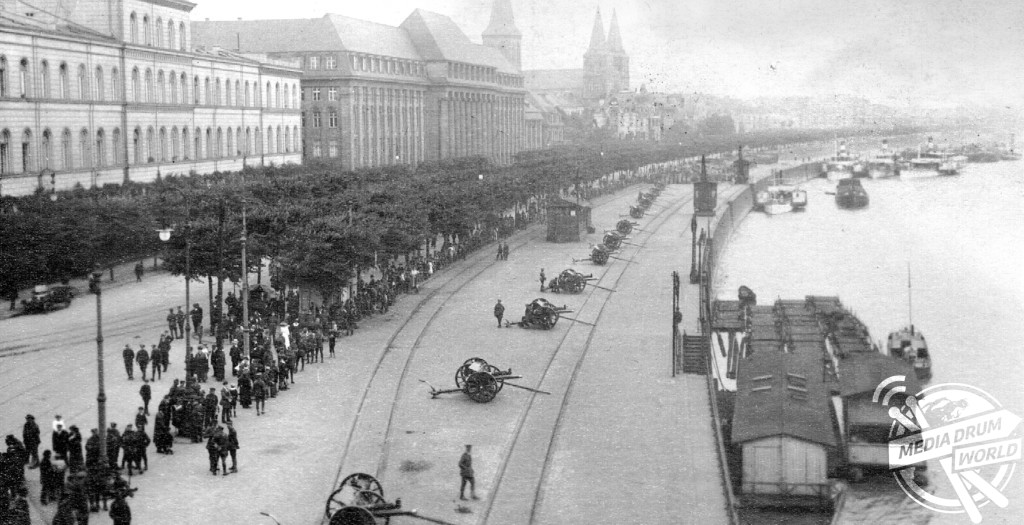By Tom Dare
THE FASCINATING STORY of how British armies in Germany after the First World War tried and failed to prevent the feelings of discontent which led to the rise of Hitler has been told in a new book.
Images from the book ‘The British Army of the Rhine after the First World War’ by Michael Foley show British troops crossing the Rhine as they prepare to establish their section of the occupation area in Cologne, while others show the German ‘Brown Shirts’ stood in formation shirtless after being banned from wearing the uniform by the Treaty of Versailles.
And in another photo a fresh young Winston Churchill, then the newly appointed Secretary of State for War, arriving to inspect British troops during the occupation of Cologne.
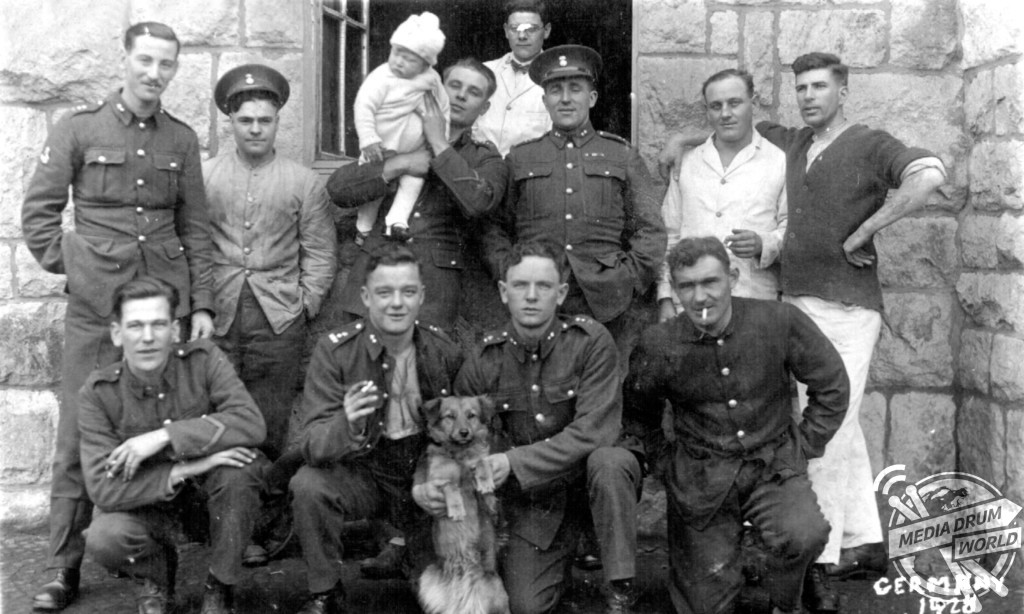
Following the signing of the armistice between the allies and Germany in 1918, British troops crossed the Rhine into Germany and entered a country torn by violence and unrest where revolution threatened and civil war seemed more likely every day.
The German public did not want them there and, in many cases, they did not want to be there, with most soldiers expecting to be discharged shortly after the war ended.
“It is important to have some level of understanding of the situation in Germany that the men of the occupation forces found themselves having to deal with,” writes Foley.
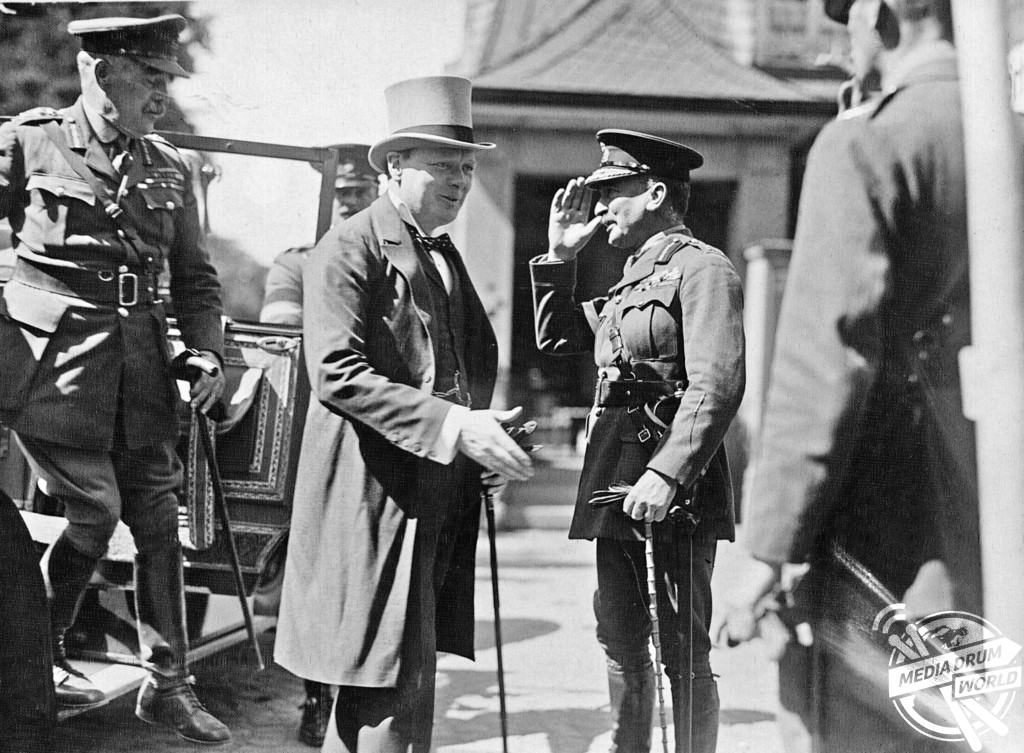
“They were not only going into a country that they had just beaten in the war (with all the resulting negative feelings that were going to be shown against them), but they also had to deal with the fact that the German population were going through a time of severe suffering and political upheaval in which the occupying forces often became involved.
“As the end of the war approached, it was to have a major effect on Germany. It was not only the fact that they had lost the war that upset the German population. Many, but not all, of the German people had already been suffering for many years from a shortage of food. What was to come after the war was to be an even bigger shock for the population.
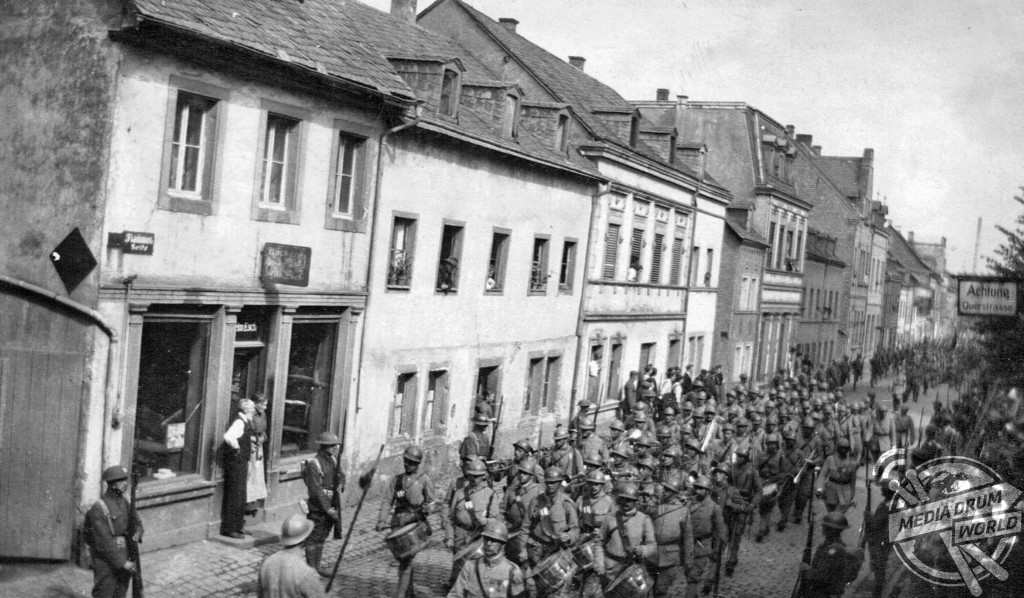
“From the way the country went after the withdrawal of the occupation forces, it would seem that the presence of the Allied troops were keeping the lid on an underlying move towards extremism by the population. Whether this was caused by Allied policy during the occupation and in the harsh sanctions enforced by Versailles is debatable.
“The movement towards a dictatorship may well have happened after the war whatever the Allies did. There is little doubt that Germany did not have a background of democracy and although there may well have been many Germans who believed in this political system and wanted peace there were many others who did not.
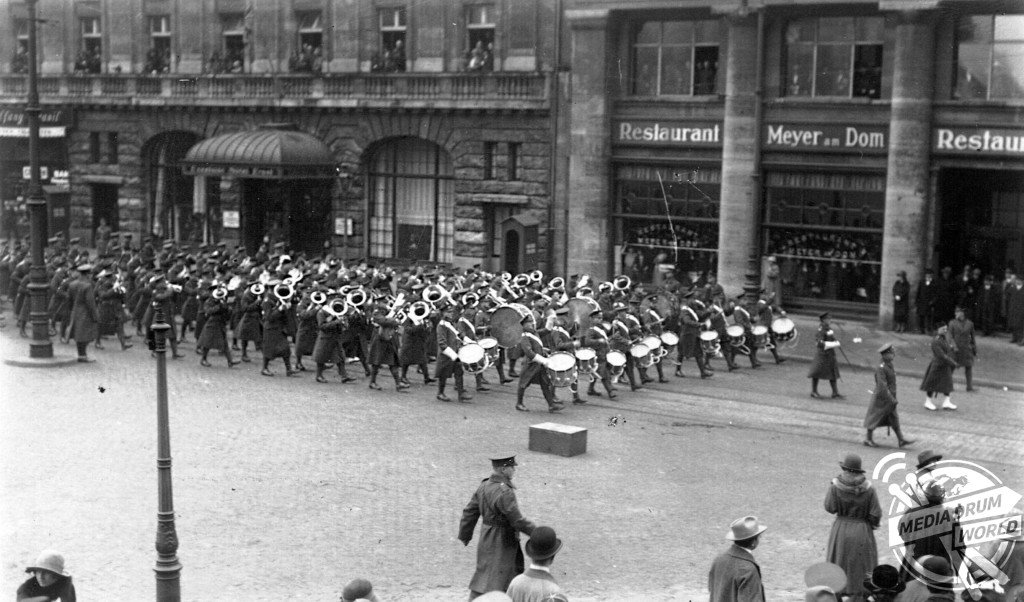
“Rather than being the reason for the rise of Adolf Hitler, it could be said that the occupation actually delayed the rise of the Nazis rather than caused it. Whatever the truth of the matter, it seems obvious that the First World War did little to solve the problems of Europe. The results of the post-war decisions by the politicians were the reason for this and, in some cases, may have made the situation in post-war Europe even worse than they had been before.”
The British Army of the Rhine after the First World War by Michael Foley is published by Fonthill Media, and can be purchased here: https://www.amazon.co.uk/British-Rhine-After-First-World/dp/1781555648

